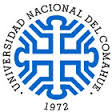La presente tesis de grado se realiza para aspirar al título de Licenciada
en Saneamiento y Protección Ambiental. El objetivo de la misma es analizar la
valoración sociocultural de los Servicios Ecosistémicos (SE) que ofrecen los
humedales de la ciudad de Neuquén. Para llevarlo a cabo se realizó una
investigación no experimental de tipo cuanti-cualitativa exploratoria y la técnica
de muestreo que se implementó fue no probabilística, accidental y por bola de
nieve.
Para recolectar datos, se diseñó un cuestionario semiestructurado con
preguntas abiertas y cerradas a través de la plataforma “Google Forms”,
organizado en 3 secciones. La primera recolectó datos sobre el perfil del
encuestado y sobre el conocimiento o no de humedales. La segunda analizó el
conocimiento, percepción y valoración sociocultural de los/as encuestados/as
que manifestaron tener conocimiento sobre humedales. Por último, en la
tercera sección se evaluó la percepción de los que manifestaron no tener
conocimiento. El cuestionario obtuvo 385 respuestas. La muestra correspondió
a 364 residentes de Neuquén capital y 21 residentes del Área Metropolitana de
Neuquén. Se consideró relevante la incorporación de sus perspectivas y
experiencias enriquecedoras para el estudio, aun cuando no pertenezcan
directamente a la población de la ciudad de Neuquén.
Los resultados obtenidos demuestran que la mayoría de los/as
encuestados/as poseen conocimiento en torno a los humedales a pesar de que
un gran porcentaje de sus profesiones no estén relacionadas al ambiente. Por
otro lado, menos de la mitad de los encuestados indicó no haber escuchado
hablar de ellos, sin embargo, a pesar de ello, han podido aproximarse a
algunos conceptos presentados en el marco teórico. La percepción sobre los
SE presentes en Neuquén capital, se centra en los SE de preservación de
biodiversidad, aprovisionamiento de agua y regulación del clima. De acuerdo a
lo hallado en este trabajo de investigación, se determinó un gran apoyo a la
conservación de los humedales por parte de la población objeto de estudio, sin
embargo, no logró verse reflejada la preocupación en acciones concretas de
conservación y limpieza de los mismos. Por último, los resultados conseguidos
fueron importantes para definir recomendaciones vinculadas a la gestión y
educación en torno a humedales. Además, esta investigación resultó relevante
en el aporte de la valoración sociocultural de humedales y sus SE en la región.
This degree thesis is carried out to aspire to the title of Bachelor of
Sanitation and Environmental Protection. The objective of this study is to
analyze the sociocultural valuation of the Ecosystem Services (ES) offered by
the wetlands of the city of Neuquén. To carry it out, a non-experimental
quantitative-qualitative exploratory research was carried out and the sampling
technique that was implemented was non-probabilistic, accidental and by
snowball.
To collect data, a semi-structured questionnaire was designed with open
and closed questions through the “Google Forms” platform, organized in 3
sections. The first collected data on the profile of the respondent and whether or
not they knew about wetlands. The second analyzed the knowledge, perception
and sociocultural assessment of the respondents who stated they had
knowledge about wetlands. Finally, in the third section, the perception of those
who stated that they did not have knowledge was evaluated. The questionnaire
obtained 385 responses. The sample corresponded to 364 residents of
Neuquén capital and 21 residents of the Neuquén Metropolitan Area. The
incorporation of their perspectives and enriching experiences for the study was
considered relevant, even when they do not directly belong to the population of
the city of Neuquén.
The results obtained show that the majority of those surveyed have
knowledge about wetlands despite the fact that a large percentage of their
professions are not related to the environment. On the other hand, less than
half of the respondents indicated that they had not heard of them; however,
despite this, they have been able to get closer to some concepts presented in
the theoretical framework. The perception of the ES present in Neuquén capital
focuses on the ES of biodiversity preservation, water supply and climate
regulation. According to what was found in this research work, great support for
the conservation of wetlands was determined by the population under study,
however, the concern was not reflected in concrete conservation and cleaning
actions. Finally, the results achieved were important to define recommendations
linked to management and education around wetlands. Furthermore, this
research was relevant in the contribution of the sociocultural assessment of
wetlands and their ES in the region.



